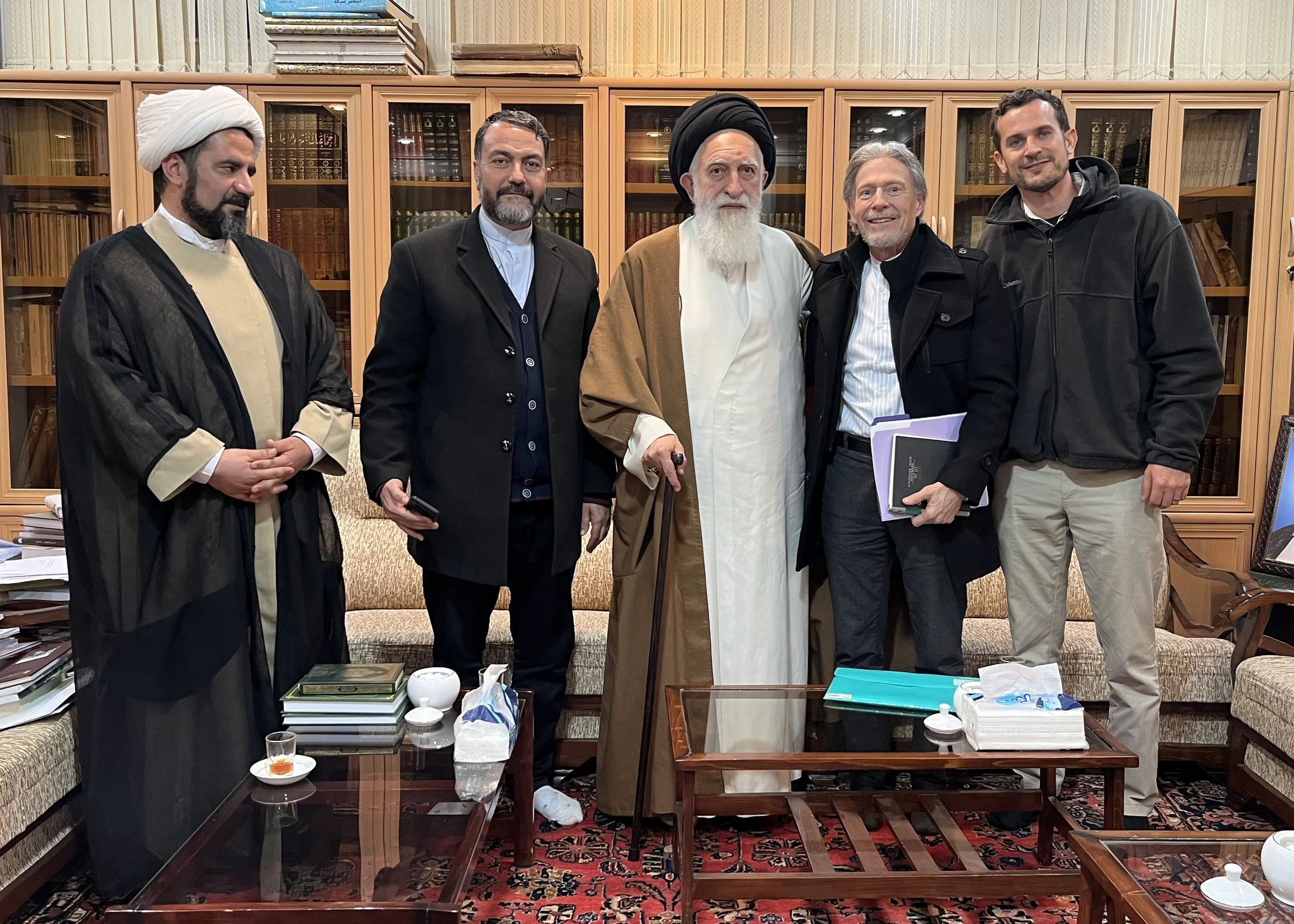
Diving Deeper: The FRD Method for Religious Diplomacy
Building Enough Trust to Contest Deep Differences in Good Faith
Building Good Will Between Trustworthy Critics and Rivals
The FRD Practice: Heart & Mind Conversations and The Way of Openness
Describing the Method
+ The FRD method for Heart & Mind Conversations creates a space to share, compare, admire, and contest different narratives, doctrines, worldviews, practices, value priorities, and explore ways to face intractable difficulties in good faith. See Introduction to H&M Conversations.
+ The FRD method includes The Way of Openness, ten solid rules of engagement that promote the desire to risk opening hearts and minds for truly fruitful conversations. See The Way of Openness Explained.
+ The method needs no mediator if participants follow the simple format, but it is congenial with a third-party facilitator if desired; and FRD can provide that assistance.
+ The method instructs participants to prepare for a long conversation by having a meal together, then by sharing personal stories about how they came to their important convictions, and finally by agreeing on topics they want to address in depth.
+ The actual Heart & Mind Conversation can then proceed at an agreeable time and place, with the participants all confident they know the topics and each other’s backgrounds.
How to Organize a Heart & Mind Conversation
+ FRD has developed a short practical Guide for Organizing H&M Conversations that is easy to follow. H&M Conversations are designed for small groups that desire to face some problem and influence positive change by engaging.
+ H&M Conversations are usually self-mediated as participants agree to follow the simple conversation rules of The Way of Openness. FRD also offers facilitation services.
+ FRD has also developed a communication network between trustworthy representatives of diverse religious and ideological groups that desire to engage in trust-building known as FRD Chapters.
+ Contact FRD to learn about the existing Chapters or to learn how to develop a new one. See Guide for Developing Religious Diplomacy Chapters.
The Way of Openness
Diplomacy of the Heart: Openness to Mutual Persuasion
-
Kindness goes further toward building trust than the other practices listed here. It is not weak, or naive, or mere politeness. Kindness is an emotional language easily recognized and understood by everyone.
-
When you are deeply honest, you acknowledge your motives for doing things, and express your thoughts and feelings without faking it. Your honesty prompts others to respond the same way, and with open hearts and minds real communication results.
-
We often presume that our adversarial critics are stupid, duped or have evil intentions. Sometimes this may be true. But we sabotage any true communication when we presume this is so in advance. Presuming good will is not agreeing with another’s beliefs or values. It grants that others are clear thinking, wise and good-hearted unless proven otherwise.
-
It is hard to listen well when you focus more on your feelings and thoughts than those of the person addressing you. Listening well is not remaining quiet before you insert your response; it is a laser-focused desire to really understand the unique person addressing you.
-
If you want to be taken seriously you must take others seriously. Sharing the floor means allowing others equal time to speak even when you feel certain you are right and they are wrong. It acknowledges the mutual dignity of those engaged in conversation.
-
Each human is uniquely different with a unique history and perspective. Acknowledging our important differences openly frees us to know where we stand without having to guess, and creates a tone of trust for real conversation.
-
With genuine differences come tough questions—especially if the goal is a trusting relationship. When you answer tough questions in a strait-forward way, sharing the floor equally and presuming good will, you build strong mutual trust. You can then face offensive issues without taking offense.
-
Any compliment feels good, but a sincere compliment from an unexpected source such as a rival or critic can move our hearts powerfully toward trust. By openly admiring the excellence or good on ‘the other side’ you demonstrate your honesty and fairness, and your confidence that your side can handle the truth.
-
Each of us is unique and we don’t like others—especially outsiders—to stereotype us or claim they know what we really believe or value. So ask, don’t tell others what they think and feel. Also, except when you have been authorized to speak on behalf of others, speak only for yourself and encourage others to do likewise.
-
Personal dignity is based in large part on your freedom to choose when and where to share your inner self with others. Being open, honest and trustworthy does not require you to disclose all things to all people. Keeping private things private means you strictly honor someone’s choice to say something to you alone.
Heart & Mind Conversation in Qum, Iran – 2024


